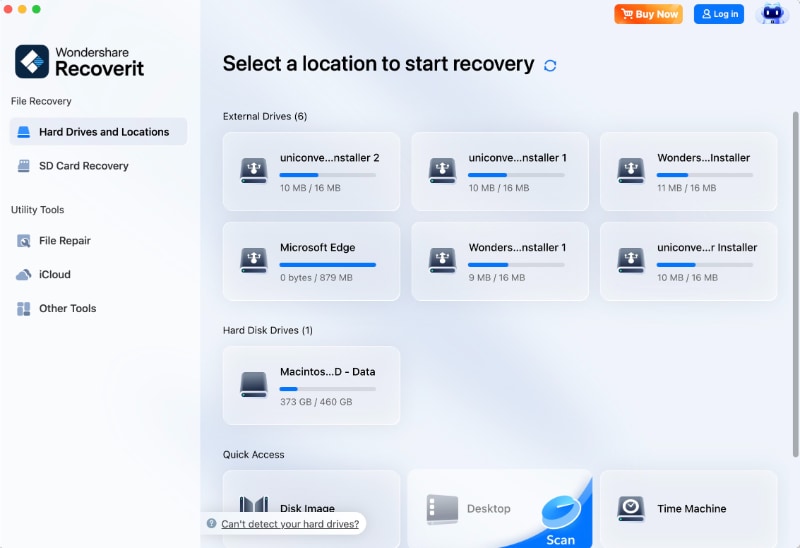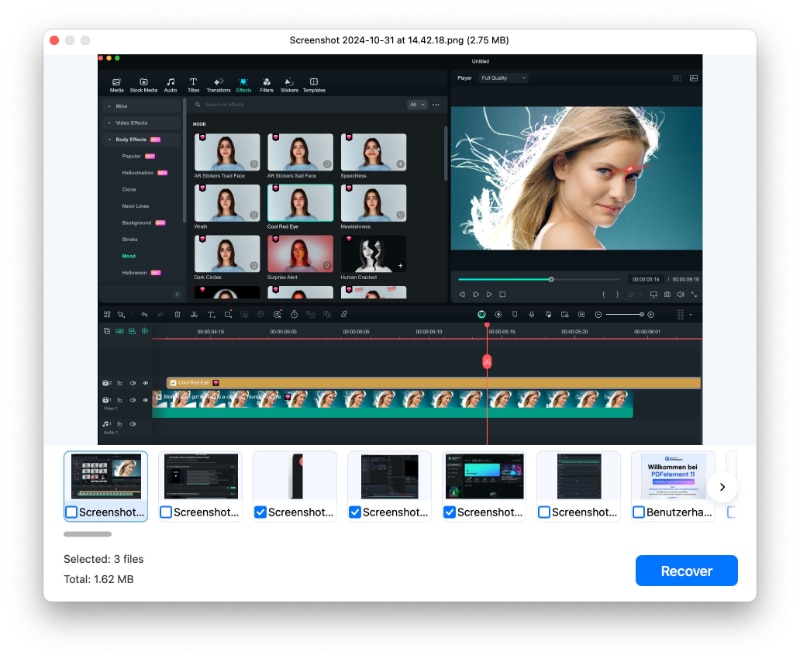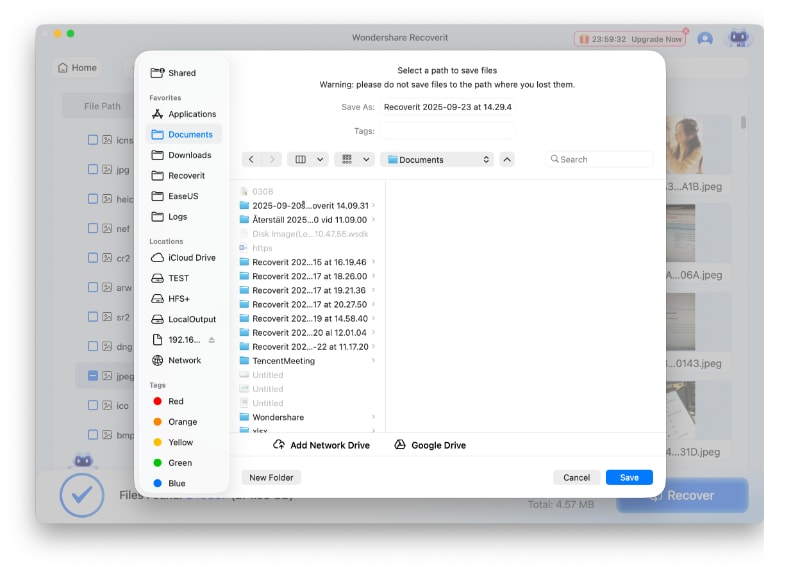All digital media products like dramas, songs, movies, documentaries, or TV series are refined and improved before being released. Viewers must use a home theater system to enjoy all these audio aspects of digital products. These systems use two different audio formats - DTS and AC3. Today, we’ll compare them and help you get to know them better.
In this article
What is DTS?
DTS is short for Digital Theatre System. This company develops and manufactures multichannel audio technologies used in video and files. It improves sound quality and builds hardware supporting sophisticated audio reproduction. Today, DTS often refers to digital sound technology rather than the company.

DTS has systems that have six encoded audio channels into one or a pair of CDs. Theater CD players and decoders can separate sound into different speakers for better sound quality. DTS uses higher bits for better sound quality, and the most well-adjusted option is the 5.1-channel audio.
Pros
- DTS is commonly used in home theater systems and offers seamless support.
- DTS is an industry standard in entertainment and is supported by different audio manufacturers.
- DTS is flexible when it comes to decoding and encoding.
- DTS has efficient compression, making the files smaller and suitable for storage or streaming.
- DTS is compatible with many different types of equipment.
- DTS works with all kinds of surround formats, including DTS-HD Master Audio and DTS:X.
Cons
- Configuring and setting up DTS systems can be complicated.
- DTS technologies and content can be expensive compared to other systems.
- Even though DTS is widely adopted, not all content is available in DTS format.
- DTS content requires more bandwidth for storage and streaming.
What is AC3?
AC3 is a technology created by Dolby Digital. This audio compression format is suitable for home theater systems, and it has lossless quality if using a 5.1 channel audio with 640k. The extension is the preferred sound format for DVDs. AC3 combines a 5.1 audio channel with one low-frequency channel and five audio channels that create an immersive experience.

The AC3 format can work with sound frequencies ranging from 20Hz to 20kHz. This range covers human audio, meaning the AC3 format can deliver all the sound details with the utmost clarity. Even though AC3 was generally known for its use in DVDs, it’s also used for other purposes.
It supports 7.1 channels for CDs and 5.1 audio channels up to 48Kbps. The maximum bitrate of AC3 format on DVDs is 640Kbps.
Pros & Cons
DTS vs AC3 – Overview
Both formats have a lost compression that reduces file size, but DTS has better audio quality overall. The bitrate is also on the side of DTS, which is partially the reason for the better sound quality. The main advantage of AC3 is that it supports 5.1 formats.
| Comparison | DTS | AC3 |
| Company name | Digital Theatre System | Dolby Digital Laboratories |
| Audio Quality | Perfect | Great |
| Encoding bitrate | Up to 512 Kbps per channel | 192Kbps |
| Loudness | Very loud | Loud |
| Main use | Theaters, movies, home theater systems; | CDs, DVDs, BluRays; |
| Surround quality | Supports various surround formats, including DTS-HD and DTS:X | Supports 5.1 audio channel surround inferior to DTS surround formats |

DTS vs AC3 – Usage and Compatibility
Usage and Compatibility: DTS
DTS audio format works and is used on different platforms and devices. However, the level of support varies depending on the specific version of DTS. DTS is used in home theater systems, including speakers, soundbars, and AV receivers. Most DVD and BluRay players also support DTS, which is commonly used to encode audio to their discs.

Some gaming consoles like Xbox and PlayStation support DTS for multimedia and gaming. Most media players support DTS audio, including Windows Media Player and VLC Media Player.
All streaming services like Amazon Prime Video and Netflix support DTS, allowing viewers to enjoy superior audio quality when watching their favorite content. Smartphones and tablets also support DTS audio so that users can download their favorite movies with this audio and experience its fullest quality.
Usage and Compatibility: AC3
AC3 is the standard format used on Blu-Ray and DVD. It is often used in radio broadcasting and digital television to deliver quality audio to all listeners and viewers.
The most common uses are digital cable and air broadcasts. Like DTS, it’s also used in home theater systems and gaming consoles. However, it’s prevalent in movie theaters because of the better quality. AC3 is also present in music production when encoding audio tracks.

DTS vs AC3 – Audio Quality Differences
The choice between DTS and AC3 usually comes down to personal preference or use case. Both technologies deliver exceptional audio quality, and most users can’t differentiate between them. In general, DTS may be better for sound effects and music, while AC3 offers clarity and crispness.

Audio Quality: DTS
The DTS format uses adaptive transform coding. This advanced compression feature preserves all the tiniest details of the original sound. That’s why DTS is an excellent option for movies and games where sound effects are important and where many things are happening simultaneously.
Even though DTS has higher bitrates, it doesn’t offer as accurate reproduction as AC3. However, DTS offers up to 7.1 audio channels, which enhance the surround sound and offer a wider audio image.
Audio Quality: AC3
The AC3 format uses perceptual coding. This lossy compression approach removes excessive information that’s unimportant to human experience. It’s perfect for broadcasting and live reporting, focusing on having the best possible quality linear audio.
It supports up to 5.1 audio channels for surround sound and provides lower bitrates, meaning the overall sound quality is lower. However, it covers all the frequencies the human ear can hear, meaning you always get a full-rounded sound.
Bonus Tip: How to Recover Audio Files
If you’re using DTS or AC3 audio files regularly for work or simply storing your movies or other audio files, you might end up losing them, and this is always a pain. Luckily, you can use tools like Wondershare Recoverit to quickly get your file back regardless of what caused the file loss or where the files were stored.
It can recover DTS and AC3 files seamlessly, like any other audio file type or media. The app works with HDDs, SDDs, USB storage, and NAS storage options. Download and install Wondershare Recoverit and follow these steps to recover lost files quickly:
- Open the app, click Hard Drives and Locations, and select the drive where your DTS or AC3 files were located.

- The app will automatically start scanning. Select discovered files and click Preview.

- Recoverit features Enhanced Video Recovery, enabling you to recover and repair videos with DTS sound formats easily. After previewing and ensuring the video, click Recover.

- Select the save destination and name your file. Click Save when ready.

Conclusion
To sum up, DTS has better audio quality and compression and supports more advanced configurations. However, the AC3 is more supported and is currently a standard for DVDs and BlueRay.
The DTS format offers more channels, meaning it has a better surround sound quality, but overall, they’re very similar. The choice between them comes from the specific requirements of playback devices and audio content, and it’s also about personal preferences.
FAQ
What is DTS good for?
DTS is suitable for home theater systems, movie theaters, gaming applications, digital broadcasting, streaming services, and music production.Is DTS the best audio?
DTS offers high-quality audio capabilities along with fantastic surround sound. That’s why it’s a popular choice for different applications. Whether it’s “best” depends on many factors, including personal preferences, the type of content used, and playback systems.Is DTS better than AC3?
DTS is generally better than AC3 when you compare them. However, they are similar and used for identical purposes.



 ChatGPT
ChatGPT
 Perplexity
Perplexity
 Google AI Mode
Google AI Mode
 Grok
Grok






















